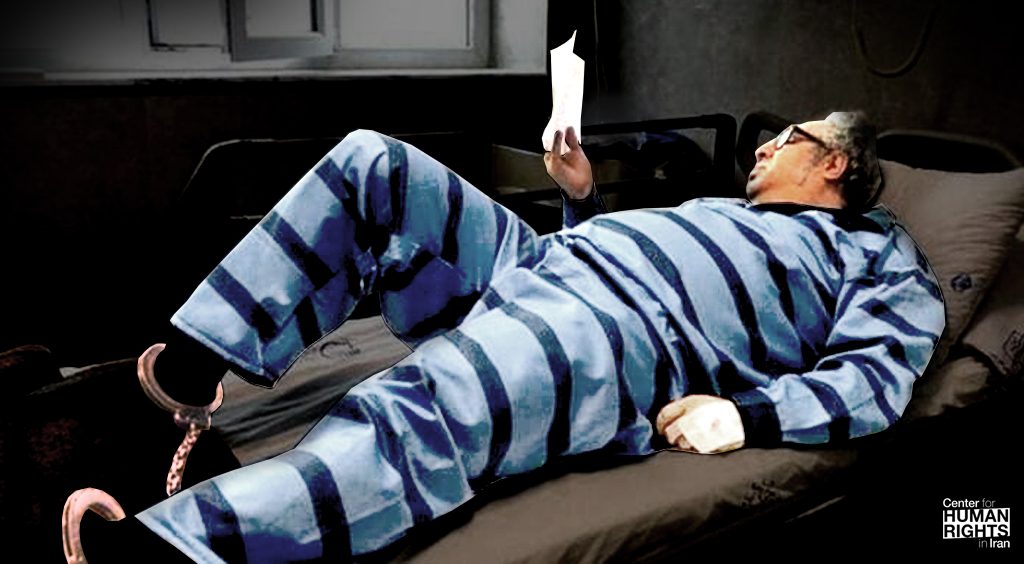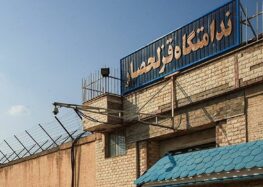Imprisoned Iranian Writers Among Countless Who’ve Been Jailed for Dissent

The Iranian government’s intolerance of dissent has resulted in systemic suppression of freedom of expression.
To prevent the free flow of information and views, Iranian courts work with the intelligence-security establishment to identify civil rights activists, writers, journalists, artists, and intellectuals and accuse them of trying to undermine the state through “propaganda.”
In a statement published on September 27, 2021–marking the anniversary of the imprisonment of Iranian Writers Association (IWA) board members Baktash Abtin and Reza Khandan Mahabadi, as well as former board member Keyvan Bajan–the group decried state censorship and the imprisonment of individuals for their thoughts:
“Imprisoning Khandan, Abtin, and Bajan despite objections by freedom-loving people and just-seeking international organizations, at a time when the impact from the coronavirus pandemic is at its worst and masses of people are dying on a daily basis, is nothing more than a continuation of the same policy of serial political assassinations to silence writers and dissidents.”
The latter part of the statement refers to the assassinations and forced disappearances of several prominent dissidents and intellectuals in 1998 by agents of the Iranian government in what came to be known as the “chain murders.”
An international chorus has condemned the imprisonment of the writers, with dozens of high-profile writers and artistic figures including Nobel laureates calling for the writers’ acquittal in a letter published by Pen America.
Engaging in any form of dissent that can be deemed critical of state policies can result in the accused individual being targeted by the intelligence-security establishment and imprisoned on the charge of “propaganda against the state.”
The Iranian government has essentially criminalized freedom of expression and speech, despite Article 28 of Iran’s Charter on Citizens’ Rights, which calls on the government to “promote and develop the culture of accepting criticism, tolerance, and compromise.”
Iranian law also stipulates that individuals should not be targeted for their beliefs.
Article 23 of the Constitution states explicitly that “The investigation of individuals’ beliefs is forbidden, and no one may be molested or taken to task simply for holding a certain belief.”
In Article 8, the Islamic principle of “enjoining the good and forbidding the evil” is prescribed as “a universal and reciprocal duty that must be fulfilled by the people with respect to one another, by the government with respect to the people, and by the people with respect to the government” and grants people the right to criticize without fear of state retaliation.
Article 24 meanwhile guarantees freedom of the press “except when it is detrimental to the fundamental principles of Islam or the rights of the public.”
Yet public dissent is often prosecuted as a national security crime even when the individual has not opposed Islam.
Activists and lawyers are also being imprisoned for engaging in peaceful freedom of expression.
On September 25, 2021, Babak Paknia, the lawyer representing human rights activist Mahmoud Mahmoudian, said his client’s four-year prison sentence for inviting people to light candles in honor of the victims of an airplane that was shot down by the Islamic Revolutionary Guard Corps has been enforced, making his release unlikely.
Mahmoudian was arrested on August 13, 2021, along with several other human rights activists and lawyers who were planning to file a lawsuit against Iranian authorities for their gross negligence during the pandemic, which resulted in the deaths of thousands of Iranians due to lack of access to safe vaccines.
On September 26, prominent human rights advocate Narges Mohammadi announced that her sentence in connection with a peaceful sit-in in Evin Prison’s Women’s Ward had been confirmed.
“From the very beginning I have repeatedly said that I believe this is fundamentally a shameless and tyrannical case and I will refuse to accept the punishment imposed on me: 80 lashes, 30 months imprisonment and two monetary fines,” she said on Instagram.
“I declare that I will not allow the agents of this religious dictatorship to flog me even one time,” she added. “I will resist as much as I can and strip the whip from their hands.”
Previously, on September 12, dissident rapper Toomaj Salehi was arrested for his recent songs which are critical of the current political and economic condition in the country. He was released on September 21 after being charged with “propaganda against the state.”
Meanwhile, imprisoned labor activist Sepideh Qoliyan, who has been on furlough since August 19, 2021, announced on social media on September 22 that she had been ordered to report to the prosecutor’s office in Bushehr, southern Iran, to respond to charges of “publishing falsehoods online” and “propaganda against the state.”
On September 9 Qoliyan had published a series of tweets describing inhumane conditions in Bushehr’s Central Prison.
Growing state intolerance of dissent has also expanded to the legal community and resulted in independent lawyers being increasingly prosecuted for defending human rights.
The latest victims include Arash Keykhosravi and Mostafa Nili, attorneys who were arrested along with Mahmoudian and a group of colleagues and human rights activists on August 14, 2021, as they prepared to file the COVID-19 lawsuit against state officials.
Muzzling all means of criticism and preventing any questioning of state policies and actions in the name of “national security” will lead to a great “social implosion,” according to a statement signed by more than 300 Iranian writers and artists on September 22.
Iran’s cultural, artistic, and journalistic communities are deeply concerned that their activities and creativity will be further curtailed under the new conservative Raisi administration.
Article 28 of Iran’s Charter on Citizens’ Rights states that “Citizens have the right to criticize, express dissatisfaction, invite to do good, and advise the Government and public entities regarding their performance,” and that the government “shall be required to promote and develop the culture of accepting criticism, tolerance, and compromise.”
Yet Iranian authorities are actively working to crush dissent to prevent any opposition to their actions and policies.
Read this article in Persian






